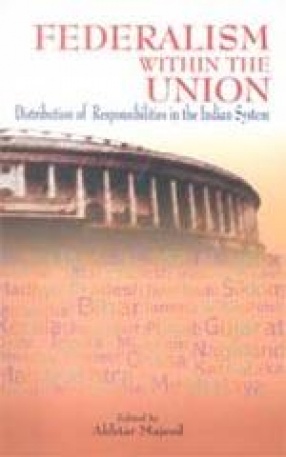Federalism within the Union: Distribution of Responsibilities in the Indian System
Synopsis
In India, there has been a historical tradition of centralization of power and authority, and a government is considered efficient and effective if it is able to bring about social transformation. Hence, very consciously the overwhelming share of powers and responsibilities has been kept with the Union. But good governance is no substitute for self-governance. Federal sharing of responsibilities does not mean that the Union has what it has and shares in the powers that the State have. It is not correct to just say that there is too much of centralisation because it is not the same level of centralization or decentralization in all subjects. Structural changes have been introduced in the system. Yet, some questions remains un-answered: Are the federal units institutions of empowerment or are they institutions of governance? In the absence of fiscal autonomy, how can these units be considered effective means of ‘shared governance, institutions of empowerment, or tiers of federal democracy? There are federal dimensions to issues that, at first, appear to constitutionally belong to one or the other tier of governance. Another paradigm shift is because of economic opening up and ‘liberalisation’. Discourses on our federalism have high lighted union-states relations, and issues of inter-states conflicts have remained neglected. All the existing formulations need to be re-interpreted in the light of contextual changes and new political-economic realities.
Read more
16.36
14.724
$
18.18 $
Free delivery Wolrdwidе in 10-18 days
Ships in 1-2 days from New Delhi
Membership for 1 Year $35.00
Get it now and save 10%
Get it now and save 10%
BECOME A MEMBER
Books by the same author











Bibliographic information